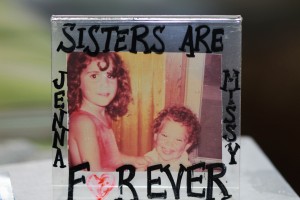
It is difficult to describe how much I love “Orange Is the New Black,” the new Netflix original series based on Piper Kerman’s memoir about her time in a women’s prison. I binge-watched the 13-episode series over the course of several days, such that when I was forced to leave my apartment, I had the vague feeling that I needed to watch my back and carry a shiv made from a Gillette Venus.
In the series, Piper Chapman (played by Taylor Schilling), a WASP-y Smith College alumna who 10 years earlier sewed her rebellious oats by dating international drug cartel employee Alex (played by Laura Prepon), is serving a 15-month sentence for having one time transported a suitcase full of drug money. New to prison, Piper, who recently became engaged to conventional Larry (Jason Biggs) and was working with her best friend on a line of high-end bath products to be sold at Barneys, feels understandably like a fish out of water, a debutante in the ghetto. Initially, she can only see the differences between her fellow inmates and herself, but soon their similarities begin to emerge.
What drew me into the series were the no-holds-barred belly laughs – picture Piper avoiding shower-floor foot fungus by crafting slippers out of maxipads because she can’t yet purchase flip flops from the commissary. But what hooked me were the flashbacks depicting the stories of Piper’s fellow inmates. Between the lovably crass punch lines (a used tampon sandwich, for example, or the ‘tit punch’), the series highlights the story behind each character, her humanity and suffering. Like the character of Janae Watson, who had a promising track career but whose ability to outrun the boys meant that none of them ever caught up to her; when a guy finally did show her some interest, he turned out to be a criminal, and she landed in prison after the two of them robbed a store and only she was caught (waiting for him to catch up).
The juxtaposition of my assumptions and stereotypes about women in prison (or anyone from whom I might feel “different”) and the very familiar emotions and traumas each character experiences set me back on my heels. In the series (as in real life), though it can be easier to put a person in a little box with a label on it, something usually happens – a revealing word, a moment of vulnerability – to signal that there is a vastness, a range of emotions and experiences, that I don’t know about. These glimpses into the individual back-stories reminded me of this Cleveland Clinic video that poses the question:
If you could stand in someone’s shoes, hear what they hear, see what they see, feel what they feel, would you treat them differently?
Many of us have the tendency to see ourselves as the protagonist, the hero or heroine, in our own story, while everyone else plays a range of supporting roles. Stepping back even a little allows us to see how flawed this approach is, to see our interconnectedness, our interdependence, or as Thich Nhat Han says, our inter-being. Since we can’t know for sure the back-story of every stranger we encounter, what if we were to imagine him or her as having experienced similar joys, losses, and traumas as ourselves; and from that place, perhaps extend him or her a little more kindness.
In Living Beautifully with Uncertainty and Change, Pema Chodron writes:
It’s said that when we make this commitment [to care for all beings everywhere], it sows a seed deep in our unconscious, deep in our mind and heart, that never goes away. This seed is a catalyst that jump-starts our inherent capacity for love and compassion, for empathy, for seeing the sameness of us all. So we make the commitment, we sow the seed, and then do our best to never harden our heart or close our mind to anyone.
image credit
video credit


 A couple of weeks ago, I read an article about why everyone hates Anne Hathaway. I always thought she was an intelligent, beautiful, uber-talented young woman, but apparently she is utterly detested by many. The author posited that perhaps her too-perfect-ness was at fault for her abysmal approval rates. Ironic, I thought: since most of us wish we were perfect, do we also wish to draw such ire?
A couple of weeks ago, I read an article about why everyone hates Anne Hathaway. I always thought she was an intelligent, beautiful, uber-talented young woman, but apparently she is utterly detested by many. The author posited that perhaps her too-perfect-ness was at fault for her abysmal approval rates. Ironic, I thought: since most of us wish we were perfect, do we also wish to draw such ire?
